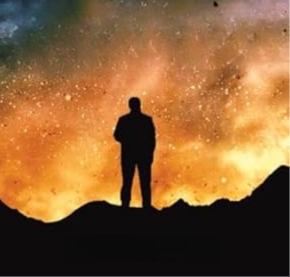Exploring the Connection Between Scientific Discovery and Faith in Literature
- zavershg
- May 22
- 4 min read
In the dynamic world of literature, certain themes consistently hold readers' attention, drawing them into rich narratives that weave together diverse aspects of human experience. One theme, in particular, stands out: the intricate connection between scientific discovery and faith. This intersection captivates readers for many reasons, from our natural curiosity about the world and our quest for meaning to fundamental questions about our existence.
This post aims to explore why readers find themselves captivated by novels that intertwine scientific inquiry with themes of faith. By looking at examples from both classic and modern literature, we can uncover the layers of complexity and allure that these stories present.
Intellectual Curiosity Sparks Engagement
The relationship between science and faith offers fertile ground for intellectual curiosity. As we become more familiar with groundbreaking discoveries—from Darwin's theory of evolution to Einstein's theory of relativity—novels that explore these themes encourage us to consider difficult questions.
For instance, consider "The Immortal Life of Henrietta Lacks" by Rebecca Skloot, which combines biographical elements with scientific exploration, prompting us to question the ethics surrounding medical research and race. Stories like this provoke discussions about how to reconcile scientific evidence with deeply held spiritual beliefs. Readers see themselves in characters grappling with similar dilemmas, enriching their understanding of both science and faith.
Philosophical Inquiries and Existential Questions
Many novels that meld science with faith invite readers to think about profound philosophical issues. The coexistence of scientific ideas and spiritual beliefs challenges us to reexamine our interpretations of life. Questions emerge, such as "What does it mean to exist?" and "Is there a divine force guiding us?"
For example, "Life of Pi" by Yann Martel masterfully explores existential questions through a young man's survival at sea, raising discussions about faith, storytelling, and personal truth. The story is not just about survival; it becomes a philosophical inquiry into the nature of belief itself, engaging readers in a dialogue about their place in the universe.
Cultural Reflections and Conflict
Literature often mirrors the society from which it originates, shedding light on the tensions between scientific progress and religious convictions. Stories addressing these conflicts help readers appreciate the complexities of contemporary life. They reflect how characters navigate cultural narratives that challenge or reinforce their beliefs.
For example, "Inherit the Wind" by Jerome Lawrence and Robert E. Lee dramatizes the historical Scopes Trial, showcasing the struggle between science and religion in America. It raises questions about morality, ethics, and the broader implications of education. The novel captures the ongoing struggle for scientific understanding within a framework of belief, encouraging readers to consider the relevance of these debates in their own lives.
Bridging the Gap between Science and Faith
Readers are attracted to narratives that illustrate how science and faith can coexist, depicting harmony instead of conflict. These stories resonate more deeply, encouraging us to seek connections in our own lives.
Consider "The Alchemist" by Paulo Coelho, in which the protagonist embarks on a spiritual quest filled with magical and scientific insights. The book encourages readers to find meaning through their personal journeys, showcasing how different perspectives can intersect beautifully. This narrative inspires readers to explore their aspirations and beliefs, reflecting on their place in the interconnected web of life.
Scientific Realism Meets Spiritual Symbolism
Another captivating aspect of novels exploring this intersection is their blend of scientific realism and spiritual symbolism. While science relies on observable facts, faith often dwells in the abstract. Novels that skillfully weave these elements together offer unique storytelling, providing deeper insights into both realms.
For example, in "Contact" by Carl Sagan, the story tackles the search for extraterrestrial life while exploring complex spiritual questions. The blend of scientific inquiry and philosophical pondering invites readers to reflect on humanity's place in a vast universe. This dynamic interplay elevates the narrative, prompting us to contemplate significant themes about existence and belief.
Developing Empathy Through Character Journeys
Readers often find themselves connecting with characters wrestling between faith and science. As these characters confront their struggles, readers engage in their journeys, fostering empathy and personal reflection.
Take Dr. Robert Langdon from Dan Brown's series, who navigates mysteries linked to faith and science. His quest for truth often presents internal conflicts that resonate with readers, allowing them to process similar uncertainties. This connection helps readers develop a deeper understanding of their beliefs, as they witness characters facing trials that mirror their own lives.
The Timeless Nature of the Debate
The conversation surrounding science and faith is a timeless theme that continues to evolve. Novels that tackle this subject resonate across generations, allowing readers from various backgrounds to engage with relevant discussions.
Whether through historical fiction or modern narratives, the connection between science and faith continues to intrigue new readers. This lasting relevance ensures that the complexities of belief remain a rich source for literary exploration, allowing authors to create engaging stories that speak to universal themes.
Final Thoughts
The exploration of the connection between scientific discovery and faith in literature is both intriguing and multifaceted. From sparking intellectual curiosity to fostering philosophical reflection, these narratives tap into some of life’s most profound themes.
As readers encounter diverse characters, questions about existence, and the pursuit of knowledge, they are challenged to ponder their own beliefs. The interplay between science and faith remains a vital aspect of literature, encouraging readers worldwide to engage, reflect, and connect with the stories that shape our understanding of ourselves and the universe.










Comments